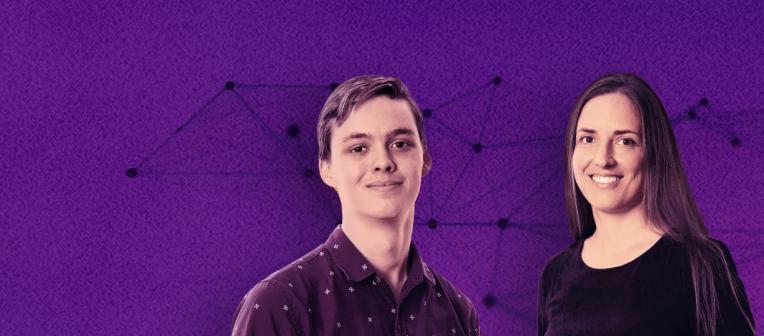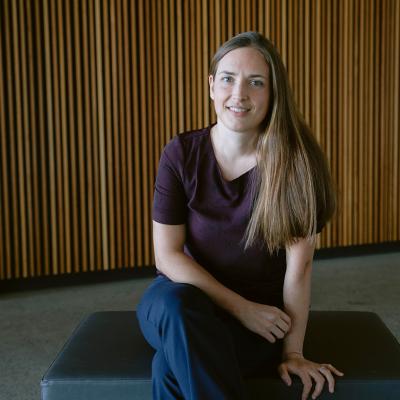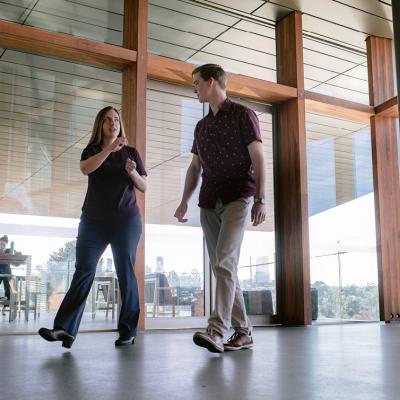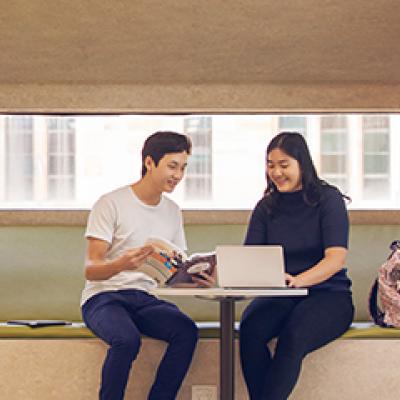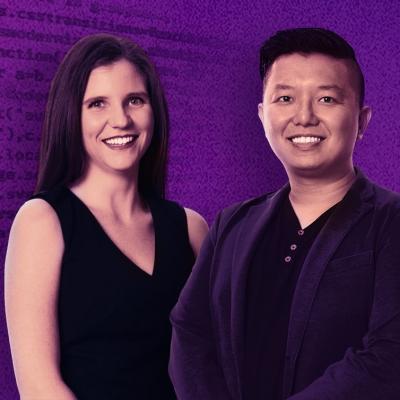Solving complex problems and making the latest discoveries in maths are ongoing fascinations for UQ mathematicians.
The greatest mathematical discoveries of the past – and the future
Advancements in mathematics have underpinned human development for millennia, and they continue to drive progress in technology, transport, communication and all of the sciences. This is one of the reasons mathematics senior lecturer Dr Sara Davies (née Herke) finds maths so compelling.
“I love working with my students on unsolved maths problems, knowing that no one in the world yet has an answer to it,” she says.
“Maths is a broad and deep field spanning beyond arithmetic, algebra or calculus.”
Sara works in the broad mathematical research field of combinatorics, specialising in graph theory. She researches graph decompositions, factorisations of graphs and Ryser's conjecture for hypergraphs – all of which are useful for governments and organisations worldwide, who need mathematical models to solve complex issues in areas such as transportation, biological systems and efficient data storage.
“For example, certain decompositions can be used to store data in a way that’s more redundant to failure. So, if a couple of disks fail, then you can recover the data, and you haven’t just duplicated everything as you’ve done it in a really clever way.”

Making new advancements and the latest discoveries in maths
Mathematicians also model transport systems as large networks, and graph theory gives insights into how to optimise those networks.
“In particular, we may want to build an efficient transport network with the fewest crossing lines, or a network that guarantees two different paths between certain points,” Sara says.
Undergraduate student Sean Fraser gives another example.
“What if we want to use a network to optimise the placement of mobile towers? Or predict spikes in demand? Do we use a deterministic, statistical or agent-based model?" he says.
“Maths allows us to make fascinating connections – from big data, machine learning and AI, to efficient routing and optimal resource allocation.”
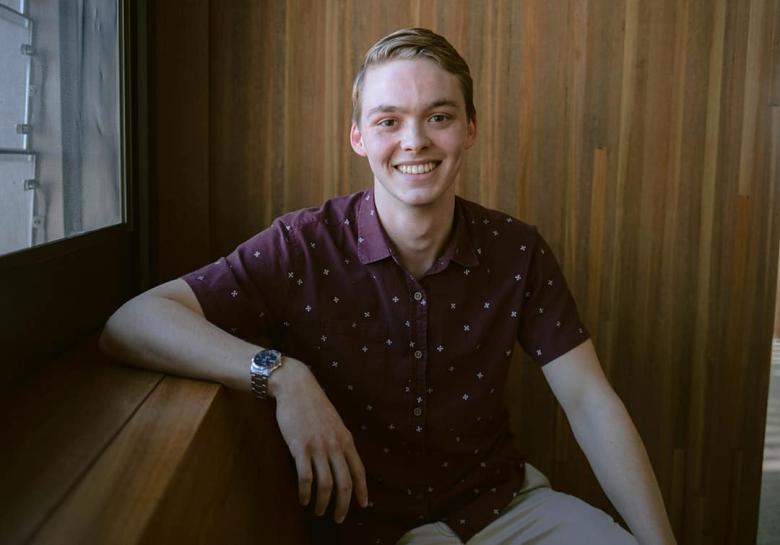
Learning the skills to make the greatest mathematical discoveries
Sara says UQ students are given the best possible foundational skills, including computer programming and science communication, to turn difficult challenges into opportunities to grow.
“Being able to take a hard problem, or a complicated, highly ambiguous problem, and not feel scared of it – I think this skill is so broadly applicable, that no matter what future directions you go in, the skill will serve you,” she says.
“That way of thinking makes you unafraid to tackle new things.”
If you think all maths has been ‘solved’, think again. Despite the huge number of mathematical discoveries that have driven human development, the field still has many mysteries to crack.
Sara enjoys working with students to show them many of the complex mathematical problems they are pursuing are “right on the edge of what is known”.
“I find that incredibly fascinating, especially when you think that some of these problems have been open for 60 or more years, and people all around the world are thinking about them. I think that sparks interest in students, and then they want to pursue a higher degree in research.”
But Sara says that, ultimately, students begin with building the confidence that they too can be a part of exploring the limitless possibilities of mathematics.
“I would love it if my students can walk away from a course and feel a little bit comfortable stepping into something unknown, challenging that, and solving it for themselves,” she says.
“When a student’s attitude towards a topic can change for the better, that’s the most rewarding part.”

